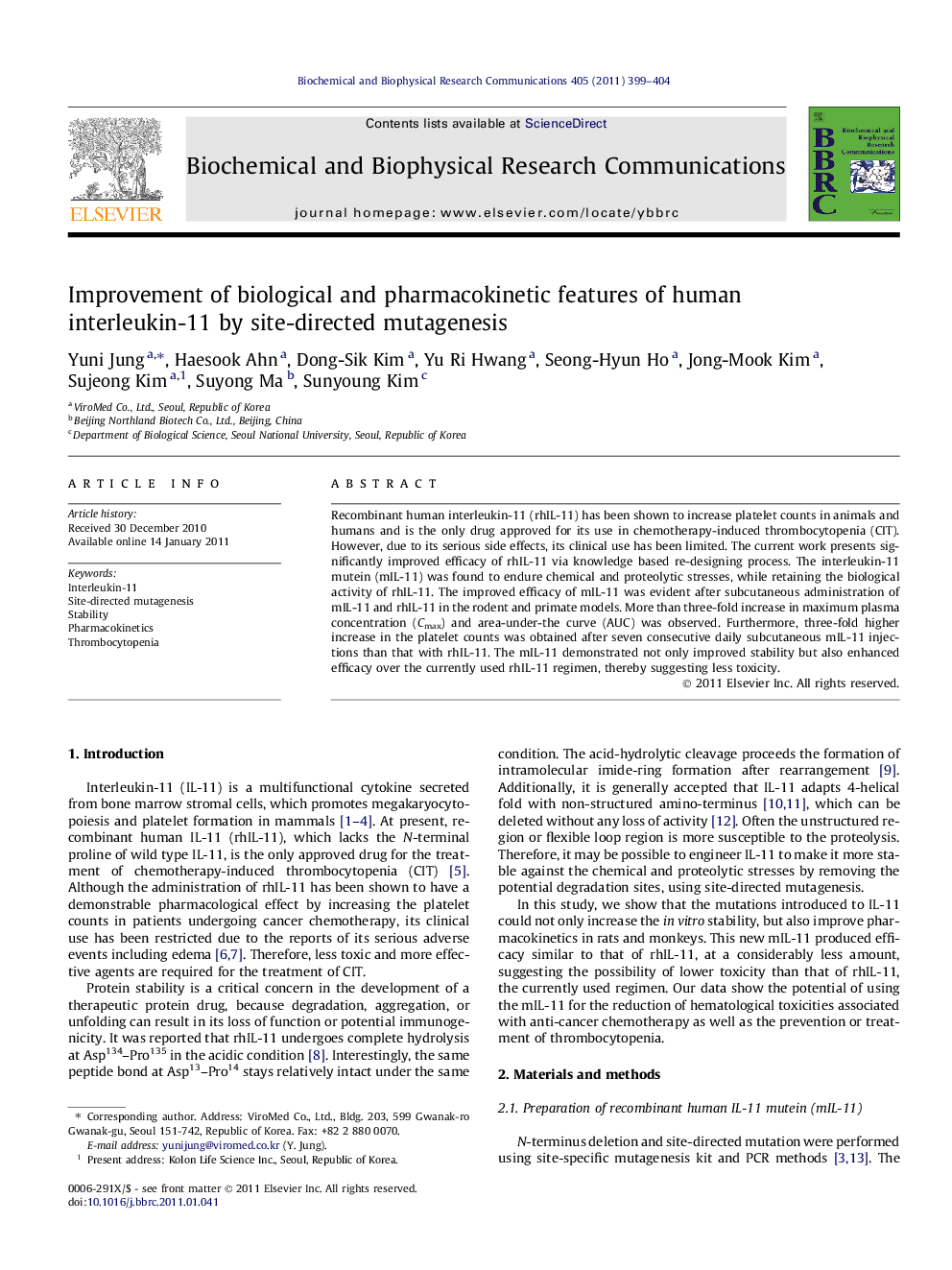| Article ID | Journal | Published Year | Pages | File Type |
|---|---|---|---|---|
| 1930676 | Biochemical and Biophysical Research Communications | 2011 | 6 Pages |
Recombinant human interleukin-11 (rhIL-11) has been shown to increase platelet counts in animals and humans and is the only drug approved for its use in chemotherapy-induced thrombocytopenia (CIT). However, due to its serious side effects, its clinical use has been limited. The current work presents significantly improved efficacy of rhIL-11 via knowledge based re-designing process. The interleukin-11 mutein (mIL-11) was found to endure chemical and proteolytic stresses, while retaining the biological activity of rhIL-11. The improved efficacy of mIL-11 was evident after subcutaneous administration of mIL-11 and rhIL-11 in the rodent and primate models. More than three-fold increase in maximum plasma concentration (Cmax) and area-under-the curve (AUC) was observed. Furthermore, three-fold higher increase in the platelet counts was obtained after seven consecutive daily subcutaneous mIL-11 injections than that with rhIL-11. The mIL-11 demonstrated not only improved stability but also enhanced efficacy over the currently used rhIL-11 regimen, thereby suggesting less toxicity.
Research highlights► Site-directed mutagenesis was introduced to human interleukin-11 to improve stability. ► The interleukin-11 mutein exhibited enhanced pharmacokinetic features and efficacy. ► The present work directs a possibility as a reinvestigated approach for chemotherapy-induced thrombocytopenia treatment.
